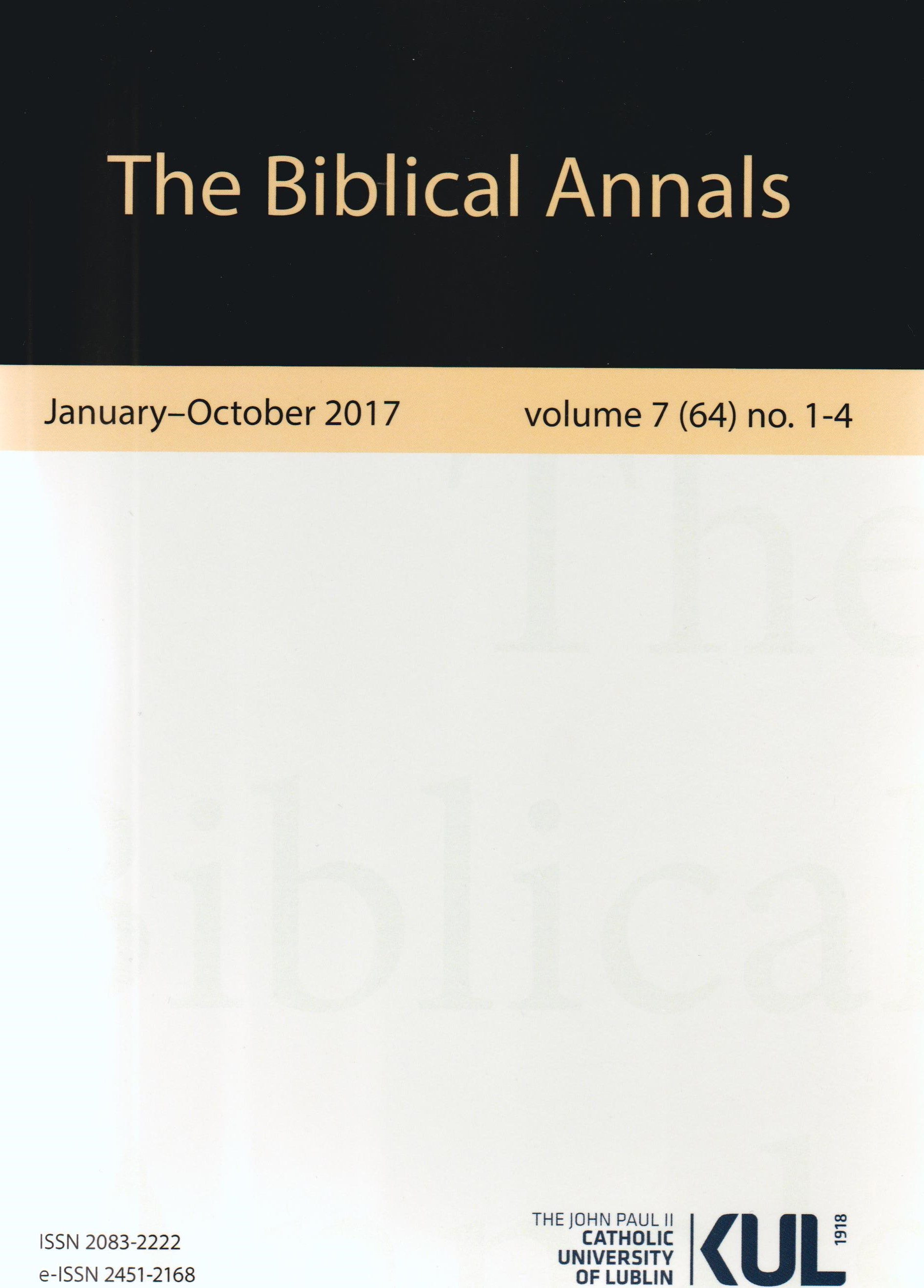Jezus zmartwychwstał czy został obdarzony zmartwychwstaniem? 1 Interpretacja nowotestamentalnych form strony biernej czasownika ἐγείρω
Did Jesus raise or was he raised from the dead?
Interpretation of the passive forms of the verb ἐγείρω in the New Testament
Author(s): Andrzej PiwowarSubject(s): Theology and Religion
Published by: Katolicki Uniwersytet Lubelski Jana Pawła II - Wydział Teologii
Keywords: ἐγείρω; strona bierna czasownika; zmartwychwstanie; powstanie z martwych; wskrzeszenie; passive voice; resurrection; being raised from the dead; raising someone from the dead
Summary/Abstract: The article focuses on the interpretation of the passive forms of the verbἐγείρω used with reference to Jesus’s resurrection. It offers a detailed analysis of thedeployment of the word in the Greek text of the New Testament as well as discussesthe possibility of interpreting Greek passive forms in a reflexive way. The verb ἐγείρωappears in various contexts and it is analyzed here depending on its meaning in a givencontext (primarily “to raise” and “to raise someone”). When the verb means “to raise,”it is intransitive, and its passive forms should be interpreted as reflexive. When it refersto resurrection, passive forms may be interpreted in the same way, but since they referalso to other persons apart from Jesus (e.g. John the Baptist), they should be treated aspassive. While Jesus – as God – could have raised himself, people could not have donethe same on their own – they were raised by God. It is a theological argument, then, thatplays a role here. Furthermore, it seems that when used with reference to resurrection, theverb should be treated as transitive (as corroborated by its active forms), which furtherjustifies the interpretation of the passive forms as passive.
Journal: The Biblical Annals
- Issue Year: 7/2017
- Issue No: 64/2
- Page Range: 251-269
- Page Count: 19
- Language: Polish

